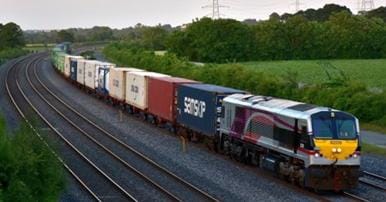The trouble with conservative politics in a time of challenge and change is that they are, well, too conservative!
The need for the development of EU transportation routes beyond traditional ones for people and goods, has never been so urgent. The South East is key to this for a variety of reasons.
The neoliberal voices of local TDs will cite Brexit and hauliers’ issues as central to this urgency, by seeking a limited business-based solution. Recent moves by TDs Verona Murphy and Hildegarde Naughton will protect and enrich the road haulage sector and increase road usage. Both have interests in these areas. The focus needs to be a multimodal one when pursuing remedies to infrastructural shifts, which will continue well into the long term.
Úna Dunphy, PBP Spokesperson says “While we are in unchartered waters with Brexit, and the obvious interference this will have on the movement of people and products, we need to look beyond aiding just one sector, when there are a number of pressing issues to be addressed. Talk of Green Lane Systems needs to be truly green and not just aiming to reduce the paperwork required to move produce, food in particular, to and from Ireland, with foreseen obstacles such as additional border checks.
Additional direct ferry routes are being developed with Government aid. The Government can go further by ensuring that Rail-freight is given priority when developing new routes, in order to reduce emissions, rather than continue with the huge polluters that are the Heavy Goods Vehicles.
The reopening of the Rosslare-Waterford-Limerick rail line, along with reduction of costs involved in this environmentally sustainable model of transportation, would ensure that we can abide by our commitments to emission reduction, as well as providing needed public transport to the population of the South East. Rail freight links already exist between Ballina and Bellview; including Rosslare in this link is an absolute must.”
The South East region needs to be prioritised as a gateway to Europe, but not with HGVs to the fore. The climate emergency may have taken a back seat to the pandemic, but it remains as critical as ever, and must be central to all developments, particularly in transport. This region, due to its proximity to the EU, along with both its ports already having routes not dependent on British land routes, is ideal for opening up, but must have a multimodal approach, which encapsulates the needs of the people and climate as well as the needs of commerce.
